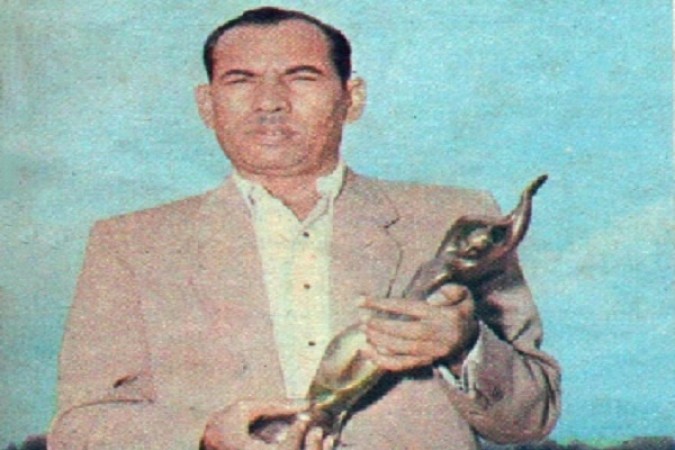
The contributions of writers frequently rival those of directors and actors in the world of cinema. Pandit Mukhram Sharma, a trailblazing screenwriter whose legacy continues to inspire, is one such icon of the Indian film industry. His noteworthy accomplishments include writing the screenplays for timeless films like "Vachan" (1955), "Sadhna" (1958), and "Dhool ka Phool" (1959), which served as Yash Chopra's debut as a director. Notably, Pandit Mukhram Sharma made history by being the first screenwriter in Hindi to have his name appear on a movie poster. This honor not only highlighted his talent but also opened the door for other writers in the Indian film community to receive recognition in the future.
The journey of Pandit Mukhram Sharma through the world of cinema was marked by unwavering passion and superior artistic ability. He was unique because of his skill as a storyteller and his capacity to create gripping narratives. He was born in Lahore in 1919. He entered the world of cinema with an innate understanding of human emotions, which later became the hallmark of his acclaimed works.
Mukhram Pandit Sharma and renowned director Yash Chopra first collaborated on the ground-breaking film "Dhool ka Phool" in 1959. This movie served as Chopra's directing debut and it is still a potent story that explores themes of social conventions, love, and acceptance. Chopra's ability as a director was built on the screenplay written by Sharma. The moving story and powerful dialogue demonstrated Sharma's skill in examining the complexities of interpersonal relationships and society.
Beyond one movie, Sharma had a wide range of knowledge. His collaborations with eminent members of the film industry included writing the scripts for "Vachan" (1955) and "Sadhna" (1958). These movies accurately captured the characters' nuances of feelings and difficulties thanks to his skillful storytelling. While "Vachan" explored issues of societal expectations and sacrifice, "Sadhna" delved into the complexities of love and self-discovery. These cinematic masterpieces gained an unforgettable depth thanks to Sharma's mastery of human psychology and his ability to capture the essence of these stories.
Mr. Pandit Mukhram When Sharma's name appeared on a movie poster, his lasting influence on Hindi cinema reached an unheard-of peak. This was a turning point because it was the first time a screenwriter's name was listed alongside the director's on a movie's advertising. This brave move ushered in a new era of writers receiving the respect they rightfully deserved in the film industry. Sharma's name on the poster represented more than just his name; it was a mark of respect for the literature that serves as the foundation for every great motion picture.
The ground-breaking accomplishment of Pandit Mukhram Sharma didn't end with the appearance of his name on a poster. It created the framework for later generations of screenwriters to gain recognition for their significant contributions. Screenwriters are now routinely given credit for their part in influencing cinematic narratives as the Indian film industry developed and this recognition of writers became the norm.
The legacy left behind by Pandit Mukhram Sharma continues to show screenwriters the way. He made a profound impression with his unmatched talent for telling tales that connect with human emotions. In addition to the screenplays he wrote, the appearance of his name on a movie poster became a source of pride for screenwriters, reaffirming their status as the creators of captivating stories for audiences.
The author's journey serves as a reminder of the importance of acknowledgment as well as the significant influence that writing has on the field of visual storytelling. The accomplishments of Pandit Mukhram Sharma stand the test of time and act as a beacon for aspiring screenwriters and proof of the enduring relationship between literature and film.
The Remarkable Reunion of Raju the Elephant and Tanuja